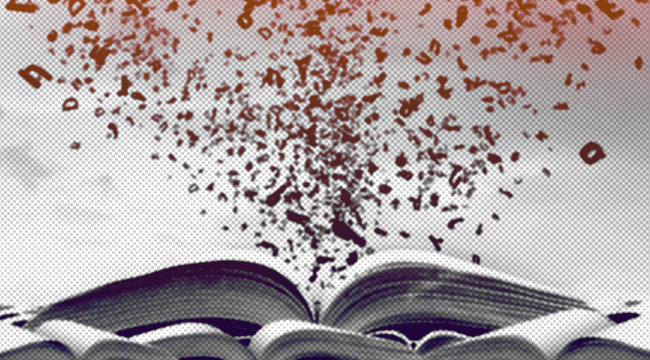
Language has always been and will always be in a state of flux. As culture changes, the meaning and impact of words evolve too. Seemingly imperceptible shifts occur every day. But while people tend to fall into two camps — those who take to new slang as easily as breathing and those who think that text-speak is destroying the English language — in reality, it ought not be such a divisive issue. Why are we fighting the inevitable shifts?
The people at Merriam-Webster (everyone’s favorite internet tease) work hard to ensure that the dictionary is never blind to current trends and always open to new words. But with this ever-changing lexicon, how, literally, do the unofficial overseers of our language decide what makes it in their book, their website, and their mobile app?
At the start of the process, a new word is put into a hard copy and digital system as a citation. Merriam-Webster editor-at-large Peter Sokolowski tells Uproxx that this entry will “contain the word itself, an example of the word used in context, and bibliographic information about the source from which the word and example were taken.” Merriam-Webster’s citation files currently have around 15.7 million examples of words and their various contexts, and in order to be added to the hallowed pages of the dictionary, editors review these citations to decide whether the word fits their criteria.
This citation system is all to ensure that evolutionary process is never hindered by human reticence, so that “the references can speak with authority without being authoritarian.” Sokolowski says that it takes three things to get through the vetting process from that point. “Sustained use, which means it’s been used for a while. Widespread use is number two. That just means it’s been used by multiple publications, and it’s not just an idiosyncratic word, used by one author, for example. Finally, meaningful use. Which is to say that all the people who use it, more or less, agree on what it means.”
With the purpose being to provide a uniform and up to date meaning for words that we use day to day, the dictionary has to constantly stay fresh. “The only constant of language is change,” explains Sokolowski. “Our job as linguists and lexicographers is to report on that change, to monitor that change.”
*whispers into the void* In contemporary use, fact is understood to refer to something with actual existence. https://t.co/gCKRZZm23c
— Merriam-Webster (@MerriamWebster) January 24, 2017
The need to stay fresh and monitor that change is more heightened right now because, as Sokolowski explains, “more writing is being done by more people than ever before.”
Sokolowski isn’t strictly referring to blogging or social media posts, he means job applications and professional correspondence too. And someone needs to stand as an authority. “Email and texting have become kind of the norm. And that means that, to me, written language is not only more widespread but more important. And therefore the recognition of these norms is as important, if not more important than ever before.”
It’s not so much a matter of if people will adapt to new linguistic changes, but when. “There’s nothing that anyone or any organization can do to stop that evolution,” claims Sokolowski. “It just so happened that we have invented, with the internet, a means of communication that is much faster in speed than the evolution of language.”
As technological advancements have impacted, for better or for worse, the ways that we communicate, it can seem like we’ve lost something. Spoken and written English are increasingly informal, sure, but just because something is different than what you’re comfortable with doesn’t mean it’s bad.
Sokolowski sums it up perfectly when he tells us that “language is [a] perfectly democratic, social organ.” And with this tool, we’re able to connect and understand each other beyond just a surface level. It speaks to our ability to co-exist culturally, but also generationally. Our differences in language preference can be tough to overcome, but they’re worth the work to ensure openness and actual communication.
Some people will always turn their noses up to the shifting shape of language, but younger generations have always been consumed by the need to make this world their own and older generations have always forgotten that. By bridging that divide, we’ll be gaining something even greater in the long run: the necessary tools for expression, leaving us better understood and better at understanding others.






